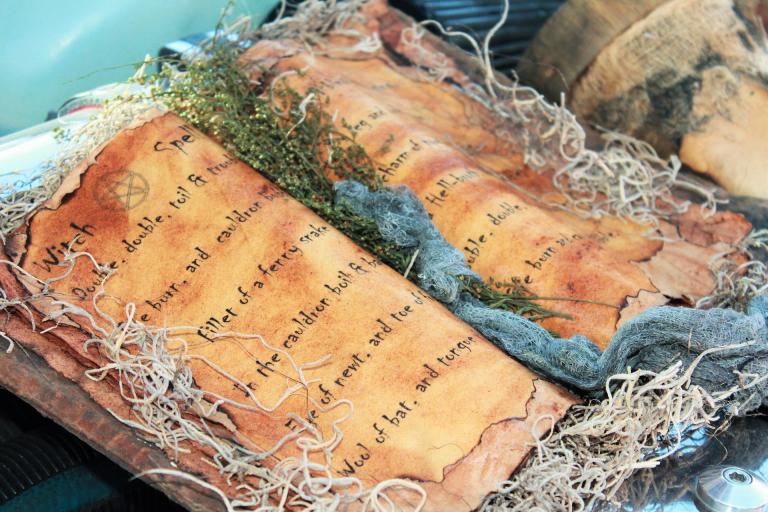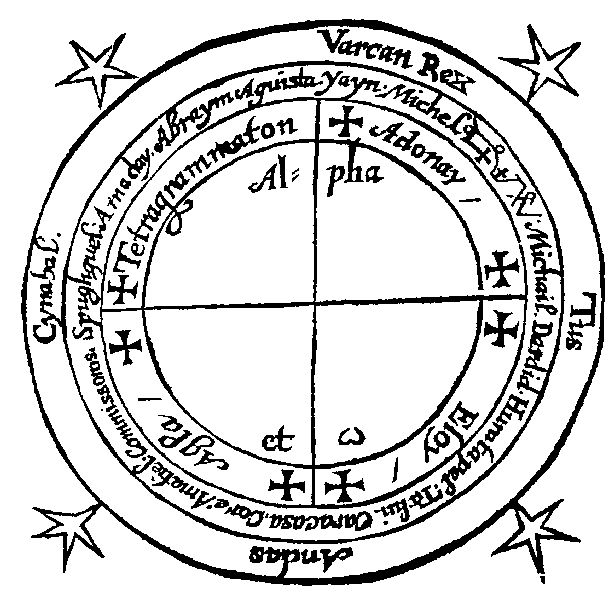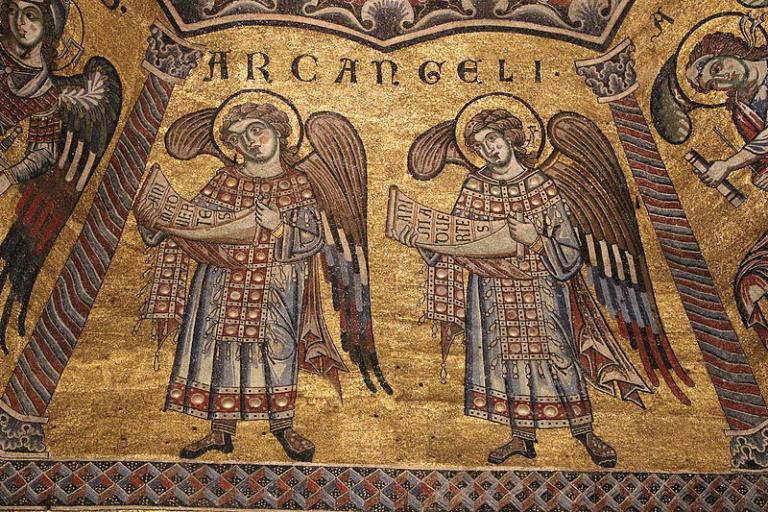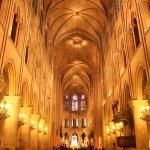David Rankine is an author, esoteric researcher and magician who lives in Glastonbury, England with his partner, artist and tattooist Rosa Laguna. He has been making major contributions to the modern occult revival since the 1980s, through lectures, workshops, presentations, articles and books. His esoteric expertise covers a wide range of topics, including the Western Esoteric Traditions, especially the Qabalah, the Grimoire tradition, Greco-Egyptian magic and Ceremonial Magic, as well as British Folklore and European Mythology.

How did you become introduced to this line of work?
I started practicing seriously at 14, spending at least 2 hours a day every day meditating and trying different rituals. If you mean grimoire conjuration, when I was 18 I was lucky enough to say the right things to the right person who was in a magical lodge (although I did not know it at the time), and was invited for an interview, which I passed.
In your career what types of metaphysics/spiritualities have you studied and worked with and what do you consider some of your best achievements?
I started practicing solo with ceremonial magic. When I was 18 the first magical lodge I was in focused on grimoire work, which was my real introduction to that tradition. I have studied Qabalah for the last 40 years and that is one of my areas of study that has remained constant. I have also been initiated into Alexandrian Wicca and a Thelemic group and studied and worked in those traditions. I studied and practiced Tantra with my partner in the 90s. I was living in Wales in the 1990s and also had some involvement with the Gwyddion tradition (Welsh Witchcraft). Over the years I have also run groups that focused on Heka (Egyptian magic).
You have an impressive body of work. Which of your books were the most fun ones to write and why?
Becoming Magick was probably the most fun to write, as it is a body of magical ideas and techniques I developed back in the late 1980s and early 1990s, and focused on looking at different ways to use established techniques and principles. I really enjoyed working on The Veritable Key of Solomon, as it involved looking at a lot of manuscripts and researching the use of the Key of Solomon in different cultures. Climbing the Tree of Life was another favorite, as it was the fruition of (at that point) 26 years of study of Qabalah and expressed my desire to make the elegant simplicity and beauty of Qabalah more accessible.

Can you describe some ancient texts that you have worked with? How do they differ between century and metaphysician?
With regard to grimoires, [I’ve worked with] mainly the Goetia, the Nine Keys, the Heptameron and a few other works from that period. As the centuries passed from the Middle Ages through the Renaissance, I would suggest the style of conjurations becomes more self-contained and concise. This may be partly due to changes in the religious landscape resulting in changes in perception of the spiritual hierarchies, and also differing types of belief from blind faith to curious skepticism.
Do you commonly practice the spells, rituals and exercises found in the ancient texts that you work with?
Not so much now as I did when I was younger. Spells and rituals are normally performed to create change or redress unbalance, so if you are satisfied with where you are at, there is not the same need or imperative to perform them. Exercises are a different matter, and I still perform daily meditation as I have for the last 40 years, and offer devotions where I feel they are appropriate.
How have these experiences changed your perception of spirituality and reality and how do they relate to your own spirituality?
The first time I was present at a successful conjuration it changed everything. The certainty of experience provides a bedrock far greater than optimistic faith. The shift in reality is profound, as it shifts your perception to the unseen worlds and spirits around us, like having the blinders taken off. This shift also makes you more sensitive to the interconnection of everything, and for me it has resulted in a far more animistic and fluid spirituality.
How do you identify spiritually: as an occultist, a witch, metaphysician, an alchemist, a pagan, a practitioner of Thelema?
Since the 90s I have most often used the term sorcerer when asked that question, as for me sorcery is magic working with spirits and the elements, and can be simple and complex.

Have you summoned archangels and demon princes from the ancient texts?
I have performed conjurations of archangels, demons, planetary intelligences and Olympic Spirits. Archangels tend to have an awesome presence and be very precise, giving only the information you ask for. Demons in my experience can be a lot more talkative, though of course, you have to be careful how you deal with that. The planetary intelligences and Olympic Spirits I have found to be the most helpful, and the easiest to create a constructive symbiosis with.
What are some common misconceptions about your field?
In grimoires, some of the most common misconceptions are about the preparation and the practice. In any field of magic, it is necessary to experience the system and become proficient in it before you start pushing the boundaries and trying to change or evolve things. Starting with an attitude of egotistical superiority rather than disciplined patience is a sure way to go wrong. For example, purification is a prerequisite for any conjuration, not only to ensure you have the focus and cleanliness it brings but also because it is a sign of respect to the spirit you are conjuring.
In Qabalah there is a common misconception about it being very complex and patriarchal when I would say it is rather about the union of opposites and their synergy (e.g. God and the Shekinah creating the universe) and consists of layers of simplicity which build upon each other and allow multiple valid perceptions. At the end of the day, the reasons for starting magic are not that relevant, if you practice with discipline and dedication it will change you, and the baggage you started with is dropped or transformed along the way.

















